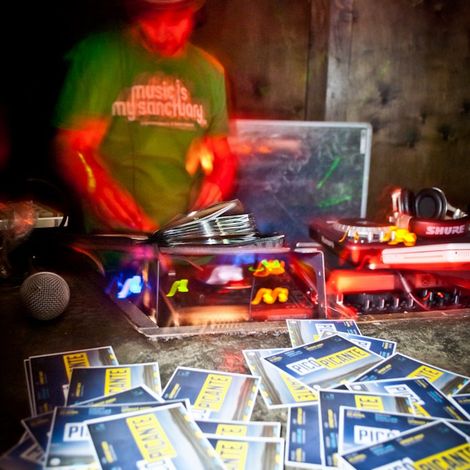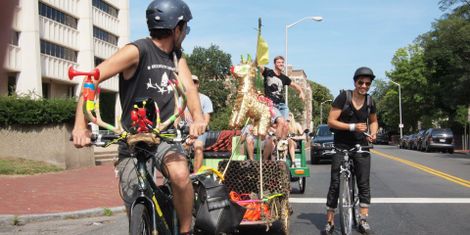Nomadic Picó Picante



We propose to create a traveling outdoor public event series called Nomadic Picó Picante, a mobile version of our monthly tropical bass party at Good Life. We will build a traveling sound system that visits neighborhoods for unannounced, guerilla parties throughout Boston.
Our sound system will be derivative of a picó—a hand-crafted mobile soundsystem for DJs with origins in Barranquilla, Colombia. Picós are painted with visual elements that evoke local history and culture, and were originally invented to create communal, public parties because people with little money weren’t welcome in dance clubs.
Working from the concept of a picó, we want to create public spaces for people across all communities in Boston, that are not able to come to Good Life because of the price point, lack of accessibility or simply feeling uncomfortable. We’ll use the platform of a box truck as a mobile stage for DJs and video artists, complete with speakers, lights and projections. We expect to have held 1–2 events by mid-summer.
We want to create public spaces that embody the post-geographic nature of tropical bass music, a genre that crossbreeds dance-friendly electronic elements with traditional and folkloric genres such as cumbia, champeta, salsa and kuduro. The nomadic parties will be public, pop-up events that use tropical bass to establish a celebratory inter-cultural dialogue in an oft-segregated Boston.
We’ve built a family of collaborators through Picó Picante by inviting local and out-of-town DJs and video artists. Our team includes: Sara Skolnick and Ernesto Morales (DJs Pajaritos), Ricardo de Lima (OXYcontinental), Vela Phelan (HEXbeam) and Ethan Kiermaier (Ultratumba).
The project will benefit participants of these events and the communities they occur in by creating an open cultural space. This action creates a dialogue by using music as a catalyst to explore the commonalities of Boston’s contemporary cultural diversity.
We kick our conclusion to Wayne Marshall, a local ethnomusicologist, to get to the heart of the matter:
"We become familiar with our neighbors when we have some regard for them, when we listen and play collectively. We can actively resist discourses of the exotic and touristic, and propose other modes of interaction with the strangers / neighbors among us: from collaboration, to taking a focused and sustained rather than “eclectic” or trendy approach, preferring 'getting under each other’s skin rather than simply 'used to each other.'"